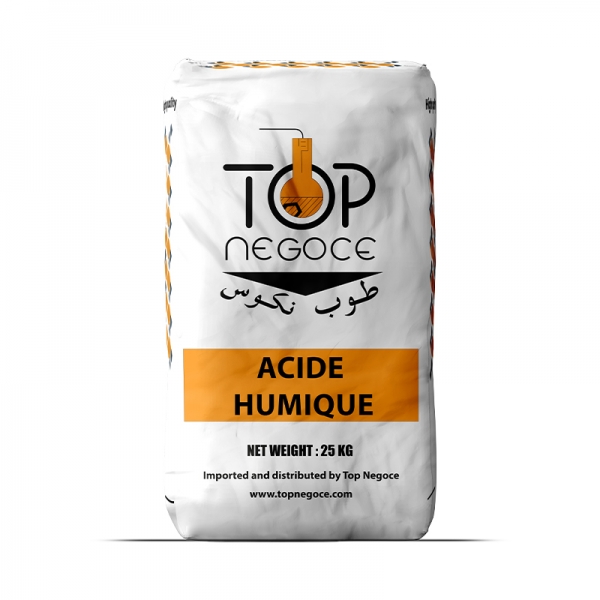Humic Acid appears as a brown to black powder, odorless, and slightly soluble in water under certain conditions. It is primarily extracted from lignite, peat, or organic-rich soils. While weakly soluble in water, it easily dissolves in alkaline solutions. Humic Acid is a complex organic compound rich in carboxylic and phenolic acids, playing a crucial role in soil fertility and water retention.
Applications:
-
Agriculture and Soil Improvement:
- Used as a soil amendment to improve soil structure, water retention, and nutrient availability.
- Increases microbial activity in soils, promoting plant growth.
-
Fertilizer Industry:
- Combined with chemical fertilizers to enhance their efficiency by reducing nutrient loss and facilitating absorption by plants.
-
Water Treatment:
- Used to adsorb heavy metals and other contaminants in wastewater.
- Applied in drinking water treatment to remove organic impurities.
-
Cosmetics and Skincare:
- Humic Acid is sometimes added to creams, lotions, and shampoos for its moisturizing and repairing properties.
- Helps revitalize skin and improve its elasticity.
-
Medicine and Dietary Supplements:
- Occasionally used in dietary supplements for its antioxidant and anti-inflammatory properties.
- Aids in detoxification and metabolism regulation.
-
Pharmaceutical Industry:
- Used in the manufacture of certain medicinal and herbal products.




